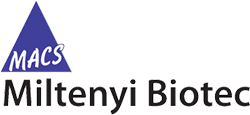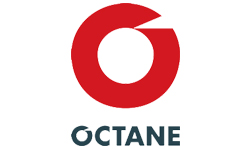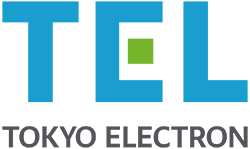As novel types of Biologics have been developed, changes in biomanufacturing approaches have been running in parallel with the intention of maximising yield and lowering production costs. Evolution Executive Search have identified 8 key production trends that will shape the Future of BioManufacturing, the eighth and final of which is Automated Closed Systems for Cell & Gene Therapy Processes.
INTRODUCTION
As the discovery and proliferation of biologic drugs continues to gain momentum, several production complications have arisen as a direct result of the complex manufacturing requirements for advanced therapies. Adapting to shifting therapeutic manufacturing requirements will involve creativity and innovation, coupled with the agility to cope with and respond to a shifting regulatory landscape.
Cell and gene therapies (CGTs) provide the potential to offer therapeutic intervention for a range of diseases for which relatively limited clinical options are currently available. CGTs consists of two main categories of complex biological products:
- Cellular therapies which contain cells or tissues derived from Allogenic or Autologous sources that exert a healing effect via replacement of tissue function or via paracrine action.
- Gene therapies are defined approaches enabling the introduction of recombinant nucleic acid(s) that replace a mutated gene, or inactivates the mutated gene, or introduces a gene to provide a healing effect that does not inactivate or replace.
In this article, Evolution Executive Search explores the novel automated closed systems for CGT production currently on the market and/or in development. Additionally, we evaluate the CDMO market for contract service providers capable of offering bespoke manufacturing solutions for CGT developers.
ONGOING CELL & GENE THERAPY CLINICAL TRIALS
The field is accelerating rapidly, with the majority of developments at early stages largely utilising open culture methods. There are some 440 ongoing clinical trials worldwide involving Cell and Gene Therapy approaches, with cancer (65%) the main disease indication, followed by monogenic disorders (11%).
Chart 1: Active Cell & Gene Therapy Clinical Trials by Current Phase
With regards to the geographic locations of the 440 ongoing clinical trials, North America accounts for 57%, followed by EMEA (25%) and APAC/India (20%).
Chart 2: Breakdown of Active Cell & Gene Therapy Clinical Trials by Region
CGT PRODUCTION: ALLOGENEIC vs. AUTOLOGOUS
Production of Cell & Gene Therapies have varying levels of complexity based on the type of treatment and the scale required to serve the market. Scalable allogeneic unmanipulated therapies are likely to follow the traditional mass-production biopharmaceutical manufacturing model used for biologics such as monoclonal antibodies. The main difference when compared to biologics is that the cell is the product, rather than a product produced by the cells.
For treatments relying upon autologous approaches, either with or without genetic modification, there are several unique challenges that must be overcome. Complex supply logistics are a significant barrier for autologous approaches, often requiring scale-out production to multiple manufacturing sites, or near the patient within a clinical setting. In this regard, an important constraint is the requirement to adhere to existing regulatory regulations within Europe, the United States and elsewhere, thereby imposing a requirement to establish and maintain comparability between sites.
At this point in time, many unit operations deployed in clinical trials are still highly manual and labour intensive, which gives rise to user variability. Alternative manufacturing approaches are required to bridge the regulatory challenge of comparability. Automated closed systems for cell & gene therapy processes which rely on equipment connectivity, with a focus on the expansion technology, are a crucial development in addressing the regulatory comparability challenge.
For autologous treatments, operational flexibility and modularity are likely to be key drivers due to patient-specific requirements and input material variability. Most unit operations can now be operated as closed systems, thereby minimising the risk of potential batch loss due to infection.
NOTABLE CLOSED SYSTEM EQUIPMENT SUPPLIERS
A number of automated closed systems are available to support cell & gene therapeutics, as outlined in table 1 below:
| Company | System |
|---|---|
 | AUTOSTEM StemCell/ StromalCell Factory |
 | Sefia S-2000 & Sepax C-Pro Cell Processing System |
 | Cell Saver® 5+ |
 | The Counter-Flow Centrifugation system (CFC) |
 | R-CPX: Robotised Cell Processing eXpert system |
 | CliniMACS Progidy |
 | Octane Cocoon |
| Ambr 250 & SelecT® Systems | |
 | Quantum® Cell Expansion |
 | Fully automated “Smart Cell Factory" |
| Aastrom Replicell System |
At this point in time the market is emerging, and as such there is no clear market leader. Companies such as GE Healthcare, Miltenyi Biotec and Sartorius Stedim are well known in the market, which may confer a level of competitive advantage due to brand recognition within the US and Europe.
CDMO SERVICE PROVIDERS
In addition to the option of in-house manufacturing, a number of developers of therapies have partnered with contract development and manufacturing organisations (CDMOs). External partnership is particularly useful for companies with products showing successful early-stage clinical results. These companies are seeking CDMO partners to increase manufacturing capacity to enable the production of the larger quantities of material required for Phase III trials and eventual commercialisation. Notable players that offer such services include:
| Company | Location |
|---|---|
| Cell Therapies Pty Ltd | Australia |
| Q-Gen Cell Therapeutics | Australia |
| Eurogentec | Belgium |
| MASTHERCELL SA/Orgenesis | Belgium & Israel |
| C3i | Canada |
| CCRM | Canada |
| Cellin Technologies | Estonia |
| Finvector Vision Therapies | Finland |
| CELLforCURE | France |
| Flash Therapeutics | France |
| NOVASEP | France |
| YPOSKESI | France |
| APCETH GmbH | Germany |
| Eufets Gmbh | Germany |
| Fraunhofer Institute for Cell Therapy and Immunology IZI | Germany |
| Miltenyi Biotec GmbH, Bioprocess Division | Germany |
| ATVIO Biotech Ltd | Israel |
| Molmed | Italy |
| AGC ASAHI GLASS | Japan |
| ID PHARMA | Japan |
| J-Tec Japan Tissue Engineering (Fujifilm) | Japan |
| MEDINET Co. Ltd | Japan |
| PharmaBio | Japan |
| Takara Bio | Japan |
| Batavia Biosciences | Netherlands |
| Oxford Biomedica | Netherlands |
| 3P Biopharmaceuticals | Spain |
| Histocell | Spain |
| Advent Bioservices Ltd | UK |
| Catapult Cell and Gene therapy | UK |
| Cellular Therapeutics Ltd | UK |
| Cobra Biologics | UK |
| RoslinCT | UK |
| Akron Biotech | USA |
| Brammer Bio | USA |
| Cognate Bioservices | USA |
| Gravitas Biomanufacturing | USA |
| KBI Biopharma | USA |
| WuXi PharmaTech | USA & China |
| Hitachi Chemical Advanced Therapeutics Solutions (HCATS)/PCT | USA & Japan |
| Lonza (Pharmacel) | USA & Netherlands |
Many of these players utilise the closed system equipment outlined in table 1. However, these CDMO players have the capacity and ability to produce custom operations that are intended to maximise the yield/efficacy of the specific therapeutic in development.
CONCLUSIONS
Ultimately the key question is how regulators will view the processes utilised in CGT production, particularly if a given treatment is complex in terms of manufacture. Thus far, regulators have stated in a non-binding manner that closed systems ideally coupled to automation should be used where possible. However, from a regulatory viewpoint the array of options available may well prove confounding, especially when presented by developer organisations that lack extensive experience of regulatory processes. This fact may well encourage these entities to utilise the contract manufacturing route, which will ultimately incur higher costs. Considering the well publicised pricing issues of approved cell and gene therapies, this trade-off could further increase the already expensive cost to both patients and the overall healthcare system.
